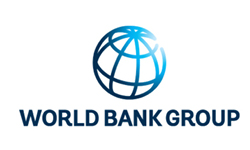Publications
Filter by
337 results found

This tool presented here in an Excel format was designed to evaluate the fulfillment of good corporate governance practices in primarily state owned water and sanitation companies in the region.


The Toolkit is a reference guide for public authorities in developing countries for the development of PPP programs in the highways sector, particularly in assisting in PPP policy development, project preparation and the sourcing and more.


This book proposes a synthesis of several of the works carried out for the research program, as well as a comparison with other works treating a similar problem.


The OECD Recommendation on Public Integrity provides policy makers with a vision for a public integrity strategy.


The purpose of the present publication, “Towards better infrastructure products: a survey of investor’s perceptions and expectations of infrastructure investment”, is to conduct the first in-depth study of the perceived role by infrastructure assets for investors.



The Reference Guide attempts to provide the most relevant examples, references and resources to help readers inform themselves on key PPP topics.



Overall, the study has taken a broad approach to defining OA - going well beyond the minimalist notion of simply guaranteeing legal access to the grid for generators and wholesale buyers.



This publication consists of analysis on the relationship between GDP growth and traffic growth and converting emerging market growth into investment opportunities.


This publication draws on the Private Sector Participation (PSP) experience of four emerging economies Brazil, Peru, the Philippines, and Turkey based on in-depth case studies by Energy Sector Management Assistance Program (ESMAP).

BCG has identified a series of best practices that underlie successful PPPs.


This PPP checklist is an extension of the initial framework.



The Framework provides systematic structure for proactively disclosing information pertaining to PPP Projects.



This report addresses the critical question: how can the public and private sectors build successful partnerships?



A G20 report prepared by the Global Infrastructure Hub reviewing the extent to which Multilateral Development Banks (MDBs) create incentives within their organisations to crowd-in private finance to fund public infrastructure.


This report reviews experiences with strategic infrastructure planning with a view to identifying international best practices.


Good governance of public infrastructure can thus yield substantial benefits for all. Based on a survey of 27 countries, this report provides an overview of current practices in infrastructure governance and presents practical tools to help policy makers better manage infrastructure.


This policy brief outlines promising ideas to attract instiutional investors to pay for infrastructure they have not convinced pension funds or affluent individuals to invest, especially in emerging economies with untested issuers, The “tax-kicker” bond being proposed here could solve this issue.

This report includes the analysis of global Information and Communication Technologies (ICT) and electronics value chains, an assessment of Ethiopia’s current and potential participation in these regional and global networks, and an analysis of the country’s competitive positions in specific segments of the sector.

This document outlines the strategy for Central Asia it envisions rail transport to become a mode of choice for trade: quick, efficient, accessible, and easy to use throughout Central Asia.

This is a new framework for road safety aims to halve the number of fatalities on CAREC road corridors by 2030 (compared to 2010).



